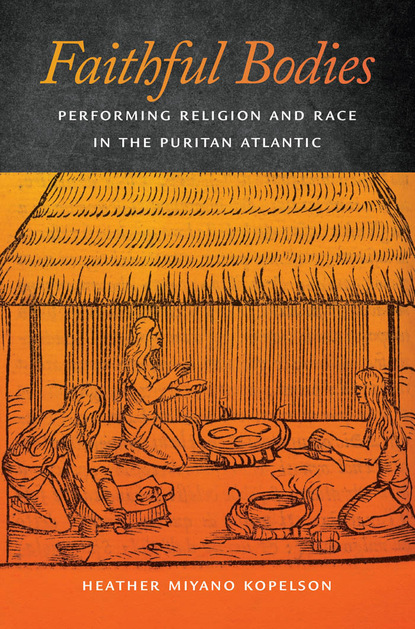
Faithful Bodies
Heather Miyano Kopelson
Inthe seventeenth-century English Atlantic, religious beliefs and practicesplayed a central role in creating racial identity. English Protestantismprovided a vocabulary and structure to describe and maintain boundaries betweeninsider and outsider. In this path-breaking study, Heather MiyanoKopelson peels back the layers ofconflicting definitions of bodies and competing practices of faith in thepuritan Atlantic, demonstrating how the categories of “white,”“black,” and “Indian” developed alongside religious boundaries between“Christian” and “heathen” and between “Catholic” and “Protestant.”
Faithful Bodies focuses on threecommunities of Protestant dissent in the Atlantic World: Bermuda,Massachusetts, and Rhode Island. In this “puritan Atlantic,” religiondetermined insider and outsider status: at times Africans and Natives couldbelong as long as they embraced the Protestant faith, while Irish Catholics andEnglish Quakers remained suspect. Colonists’interactions with indigenous peoples of the Americas and with West CentralAfricans shaped their understandings of human difference and its acceptableboundaries. Prayer, religious instruction, sexual behavior, andother public and private acts became markers of whether or not blacks andIndians were sinning Christians or godless heathens. As slavery becamelaw, transgressing people of color counted less and less as sinners in Englishpuritans’ eyes, even as some of them made Christianity an integral part oftheir communities. As Kopelson shows, this transformation proceededunevenly but inexorably during the long seventeenth century.
Купить можно в магазинах:
ISBN-10: 1-4798-5234-1
ISBN-13: 978-1-4798-5234-5
Язык книги: en
Возрастные ограничения: 0+